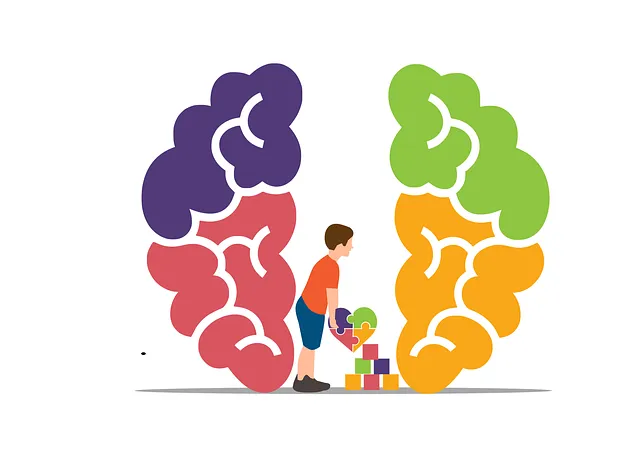In today's diverse healthcare landscape, particularly within organizations like Kaiser Permanente serving varied communities, cultural competency is crucial for delivering quality patient care. Mental health professionals at Kaiser Permanente in Arvada integrate cultural competency training, including social skills, compassion cultivation, and risk management, to address cultural disparities and enhance patient satisfaction. Their tailored mental wellness programs and accessible psychiatric support services, such as the Kaiser Permanente psychiatry phone number Arvada, set a benchmark for inclusive healthcare delivery. To continually improve training, organizations can employ strategies like surveys, feedback, peer learning, and measurement tools, refining programs, improving care, and creating more inclusive environments.
“Cultural competency training within healthcare is an evolving necessity, especially with diverse patient populations. This article explores this critical aspect of modern medical care, beginning with a comprehensive overview of cultural competency in healthcare. We delve into the specific role of psychiatry and mental health services in fostering this competence. A case study of Kaiser Permanente Arvada’s successful implementation serves as inspiration, followed by strategies for continuous improvement. Learn how organizations like Kaiser Permanente psychiatric services in Arvada are setting benchmarks for cultural sensitivity.”
- Understanding Cultural Competency in Healthcare: A Necessary Overview
- The Role of Psychiatry and Mental Health Services in Cultural Competency Training
- Kaiser Permanente Arvada: A Case Study on Effective Implementation
- Strategies for Continuous Improvement and Measuring Success
Understanding Cultural Competency in Healthcare: A Necessary Overview

In today’s diverse healthcare landscape, cultural competency is more than a buzzword; it’s an essential component for delivering quality patient care. This concept refers to the ability of healthcare providers to understand and effectively interact with patients from different cultural backgrounds, recognizing and respecting their unique perspectives and values. Cultural competency involves developing sensitivity to cultural differences in communication styles, beliefs about health and illness, and decision-making processes. For organizations like Kaiser Permanente, which serves a wide range of communities, such as the vibrant population in Arvada, ensuring cultural competency is crucial for building trust and fostering positive patient outcomes.
Mental health professionals, in particular, face complex challenges when navigating cultural disparities. Given the sensitive nature of psychiatry and psychology services, integrating cultural competency training into their practices is vital. This can involve incorporating social skills training to improve communication with diverse patients, learning compassion cultivation practices to enhance empathy and understanding, and even considering risk management planning for mental health professionals to address potential cultural triggers or misunderstandings. By embracing these initiatives, healthcare providers not only improve patient satisfaction but also contribute to a more inclusive and equitable healthcare system.
The Role of Psychiatry and Mental Health Services in Cultural Competency Training

In the context of cultural competency training for healthcare providers, the integration of psychiatry and mental health services plays a pivotal role. These specialized fields are essential in addressing the unique challenges faced by diverse patient populations. By incorporating mental health practices into training programs, healthcare providers gain invaluable insights into understanding and supporting individuals from various cultural backgrounds. This is particularly relevant when considering the growing diversity within communities, including those served by organizations like Kaiser Permanente in Arvada.
The focus on social skills training within psychiatry can enhance emotional healing processes and emotional regulation strategies. Through these training initiatives, healthcare professionals learn to navigate sensitive cultural topics, improve communication, and foster a sense of safety and trust with patients from different ethnic, racial, and socioeconomic groups. Such efforts are vital in reducing disparities in mental health care and ensuring that all individuals receive culturally responsive treatment and support.
Kaiser Permanente Arvada: A Case Study on Effective Implementation

Kaiser Permanente Arvada stands as a shining example of effective cultural competency training implementation within the healthcare sector. This case study highlights their comprehensive approach to addressing diverse patient needs, particularly in mental wellness, depression prevention, and trauma support services. By recognizing the importance of cultural sensitivity, Kaiser Permanente Arvada has successfully integrated these initiatives into its core practices.
The organization’s efforts are evident through tailored programs that cater to various cultural backgrounds. Their psychiatric phone lines, accessible via the Kaiser Permanente psychiatry phone number Arvada, offer a confidential space for individuals seeking support for mental health concerns. This initiative ensures that patients from diverse communities can access specialized care, fostering an inclusive environment and improving overall trauma support services. Through such innovative measures, Kaiser Permanente Arvada has set a benchmark for cultural competency in healthcare delivery.
Strategies for Continuous Improvement and Measuring Success

To ensure continuous improvement in cultural competency training for healthcare providers, organizations like Kaiser Permanente, with its Arvada psychiatry phone number readily accessible, can implement several effective strategies. Regular evaluation through surveys and feedback sessions allows for gauging the impact of training programs and identifying areas that need enhancement. Incorporating Mental Wellness Journaling Exercise Guidance can provide valuable insights into participants’ experiences and challenges, enabling tailored interventions. Additionally, fostering open dialogue and peer-to-peer learning encourages the sharing of best practices and personal growth.
Measuring success goes beyond attendance and includes assessing knowledge retention, skill application, and patient outcomes. Tracking reduction in instances of miscommunication or inappropriate care due to cultural barriers is a significant indicator. The development of coping skills, such as those promoted by Anxiety Relief initiatives, can also be quantified through pre-post assessments. By integrating these measurement tools, healthcare providers can continuously refine their training programs, ultimately enhancing patient care and fostering more inclusive environments, like the one Kaiser Permanente strives for in Arvada.
Cultural competency training is an essential aspect of modern healthcare, as evidenced by successful initiatives like Kaiser Permanente Arvada’s program. By integrating psychiatric and mental health services into cultural competency education, healthcare providers can better serve diverse communities. This comprehensive approach ensures that patients from various backgrounds receive equitable care. As highlighted in this article, continuous improvement strategies and measurable success indicators are vital to sustaining these programs. Remember that, as seen with the Kaiser Permanente psychiatry phone number Arvada resources, accessible training materials and ongoing support can greatly enhance cultural competency across healthcare sectors.






